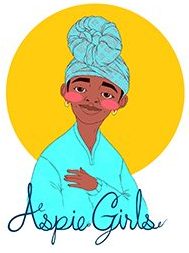Today I perused the New York times as I do on most Sundays. My ritual is occupying a chair at Dancing Goats Coffee after meditation. It’s calming and I really like the cheese and herb scone. On this Sunday I run across an opinion article, Adult, Autistic and Ignored, how fortuitous. This backs up one purpose for making ASPIE Girls which is what happens when kids with autism grow up?
Each of my friends that I’ve followed over the years is an adult with Aspergers syndrome and functioning as an adult without parental or family support is not only difficult, but sometimes dangerous. Aging parents are left with securing a way to make sure that their Aspie adult child will be in a good situation when they can no longer care for them.
With the growing population of people on the autism spectrum, I think it is society that really needs to pay it forward to take care of adults with autism.
